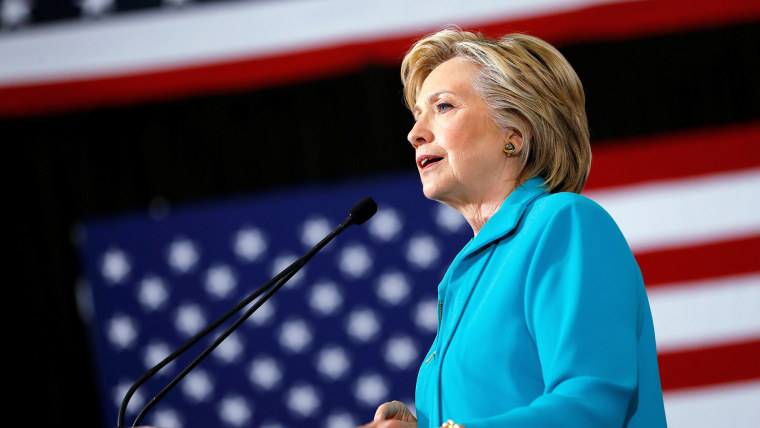When Donald Trump's campaign manager, Kellyanne Conway, sat down with Rachel last week, she lamented the overall direction of the presidential race. "[S]o much of the campaign has been content-free cacophony," Conway complained, with "no substance being discussed."
Let's put aside, at least for now, the role the Republican presidential candidate has played in pushing the 2016 race away from anything resembling a policy debate. Instead, let's pause to note Hillary Clinton's efforts yesterday to push back against the "content-free cacophony" by unveiling policy measures such as her package of mental-health initiatives. The Washington Post reported overnight on the Democratic nominee's new proposal, released yesterday:
The plan, the Democratic nominee said, seeks to fully integrate mental health services into the nation's health-care system during her tenure as president. Measures include a national suicide prevention initiative, higher payments for providers in the Medicaid program, an emphasis on treatment over jail for low-level criminal offenders with mental health issues and the creation of new housing and job opportunities. Clinton also pledges increased investment in brain and behavioral science research and to fully enforce prior laws that require mental health coverage to be an essential benefit in health insurance plans.
Some of the provisions of Clinton's plan are familiar -- they've been touted before by policy experts and officials in the Obama administration -- but the entirety of the Democratic candidate's comprehensive agenda is nevertheless compelling.
For that matter, it's also the sort of initiative that could benefit an enormous number of Americans: as the Washington Post's report added, roughly "1 in 5 adults -- or 43.6 million people -- had a mental illness in 2014, with nearly 10 million of those experiencing a serious condition, such as schizophrenia or bipolar disorder."
As a political matter, though, one of the things I found interesting about yesterday's policy rollout was the reaction -- or in this case, the lack thereof -- from Clinton's detractors.
It seemed plausible, for example, that congressional Republicans and/or the RNC would complain that Clinton's mental-health plan would cost too much. Maybe we'd hear the ol' "throw money at the problem" canard or something similar.
But that's not what happened. Instead, congressional Republicans said nothing and the RNC didn't even bother to issue a perfunctory press release.
And what about Trump? The Republican presidential nominee had plenty to say yesterday about Anthony Weiner and the NFL quarterback who doesn't want to stand for the National Anthem, but Trump didn't even pretend to care about Clinton's agenda on mental health.
The GOP candidate, incidentally, has offered no comparable plan on the same issue.
Which brings us back to Trump campaign manager Kellyanne Conway, and her concerns that "no substance [is] being discussed" in the 2016 race. It's hardly an unreasonable concern, but under the circumstances, it seems awfully difficult to blame Clinton for the problem.
